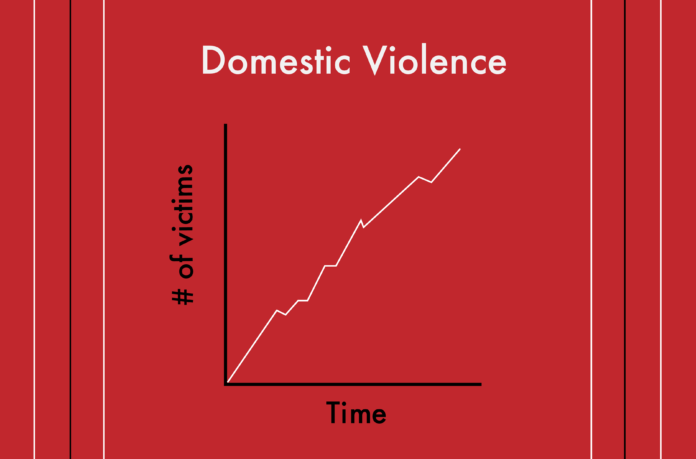Victims of domestic violence now forced into isolation with abuser, limited access to support
With the extensions of the shelter-in-place order, there have been negative consequences for those who are trapped in unsafe living situations with domestic violence.
Sarah Meredith, the director of the UC Davis Center for Advocacy, Resources and Education (CARE), defined domestic violence as “any form of violence or abuse that is committed within an intimate partner relationship or prior intimate partner relationship.”
Meredith explained that domestic violence typically exists within a pattern of abuse based on power and control, and the abuser will often seek to isolate their victim. Due to this isolation already being imposed on all households as a result of the COVID-19 pandemic, victims no longer have access to normally-available support and resources.
“Many of them are living in the home or sheltering in place with the person who is also trying to keep them isolated,” Meredith said. “Until we get back to a place where people have access to their support system, the isolation just further exacerbates the effects of domestic violence.”
Since the first shelter-in-place order back in March, domestic violence calls to the Davis Police Department have increased by 6.4%, according to The Davis Enterprise.
Forensic Science International, a journal about medical and scientific contributions to administering justice, released a report on the necessity of social distancing despite its negative impact on domestic violence.
“Though necessary to slow the spread of the novel Coronavirus (Covid-19), actions such as social-distancing, sheltering in-place, restricted travel, and closures of key community foundations are likely to dramatically increase the risk for family violence around the globe,” the report reads.
Amy Groven, the director of clinical programs at Empower Yolo, explained how the mandatory shelter-in-place order has resulted in an added financial burden that can significantly impact a person’s stress level, possibly leading to increased incidence of domestic violence.
Stressors such as reduced employment hours or job loss are additional factors for people to worry about, along with the initial stress caused by the pandemic itself.
“All of these things can add to a person’s stress level,” Groven said. “While stress itself is not something that makes people necessarily violent, it is a contributing factor.”
These times are already challenging enough, and Groven fears a further increase in domestic violence incidents if the shelter-in-place order continues to be extended.
“[Providers] need to be innovative with the way that we handle domestic violence and helping people,” Groven said. “The most important thing if you are in a domestic violence situation is to let somebody know, whether it’s calling a crisis line or telling a friend or family member.”
Empower Yolo and CARE both serve to help survivors of domestic violence and sexual assault. CARE offers support-based resources including confidential crisis intervention, information about reporting options, safety planning and resource referrals. Empower Yolo has a 24-hour crisis support line, peer counseling, specialized support groups and a therapy department.
The CARE website provides a message for families during the COVID-19 pandemic.
“CARE recognizes the additional hurdles created for survivors by the COVID-19 health crisis […] the need for resources and support has never been greater for our community,” its website reads.
Meredith emphasized that resources like CARE are still available no matter where people experiencing domestic violence are sheltering in place and that they will work with survivors through a communication method that is safest for them.
“Our job is to understand survivor rights and options,” Meredith said. “We provide confidential crisis intervention, advocacy and accompaniment.”
Meredith had a few final words of advice for anyone currently experiencing domestic violence.
“This is not your fault,” Meredith said. “You don’t deserve to be treated in a way that is abusive, and you deserve to have healthy, respectful relationships.”
Written By: Jelena Lapuz — city@theaggie.org




